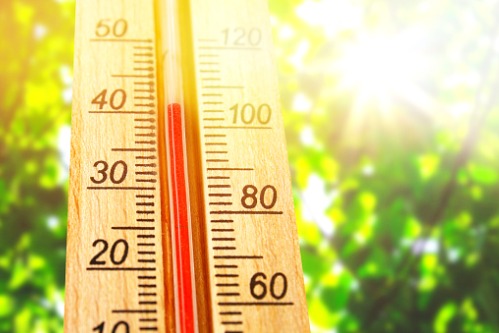
Can the Weather Cause an Asthma Flare-Up?
While you may notice your asthma gets worse when exercising, smelling certain perfumes, or being around pets, there are other asthma triggers that may be just as problematic. For example, many people with asthma find that changes in the weather cause asthma flare-ups. So, whether it’s a cold front or a heat wave, you should be aware of how the weather may affect your asthma and take steps to prevent an asthma attack.
How Cold Weather Affects Asthma
Many people with asthma find that their symptoms worsen when it’s cold outside. If you have exercise-induced asthma, you may be particularly susceptible to asthma problems in cold weather. The air is generally drier in the winter, which may cause the airways to become irritated and lead to asthma symptoms.
In addition, when you breathe in cold air, it may cause the airways to constrict, which may further exacerbate an asthma flare-up. Fortunately, there are steps you can take to prevent asthma problems in cold weather, such as:
- Wearing a scarf or face covering when outside
- Avoiding strenuous outdoor activities when it’s cold
- Doing a proper warm-up before exercising
- Having an inhaler with you at all times in case of an asthma attack
- Keeping indoor air moist by using a humidifier
Furthermore, during the colder months of the year, illnesses such as the flu and common cold are more prevalent. These illnesses may cause asthma symptoms or trigger an asthma attack. That’s why it’s important to get a flu shot every year and take other steps to prevent getting sick.
How Warm Weather Affects Asthma
Many people with asthma also find that their symptoms worsen in warm weather. Hot and humid weather cause allergens such as pollen, dust mites, and mold to thrive, which may lead to asthma symptoms.
If you have allergic asthma, you may be particularly susceptible to asthma problems in warm weather. Air pollution is also more common in warm weather, which may cause an asthma flare-up. To prevent asthma problems in warm weather, try to:
- Limit time outdoors when pollen counts are high
- Drink plenty of fluids to stay hydrated
- Check the air quality index before spending time outdoors
- Keep your house cool to lower humidity and prevent the growth of mold
Moreover, wearing a wide-brimmed hat, sunglasses, and a face mask when outdoors may keep pollen and other allergens away from your nose and mouth. This, in turn, may help to prevent asthma symptoms during warm weather.
Other Weather-Related Asthma Triggers
The phenomenon known as “thunderstorm asthma” happens when the rain and wind from a thunderstorm stir up pollen and other particles in the air, which may cause asthma symptoms or trigger an asthma attack. Thunderstorm asthma is most common in the spring but may happen at any time of year.
While the colder months are more likely to cause asthma problems, asthma flare-ups may happen during any month of the year. Be sure to talk to your doctor about the steps you may take to prevent weather-related asthma attacks. Having an asthma action plan in case of an emergency is also crucial for managing asthma. With proper preparation, you may enjoy the weather no matter the season.
Prevent Your Next Asthma Flare-Up with Northeast Allergy
Have you been struggling to get your asthma under control during the changing seasons? Northeast Allergy, Asthma & Immunology can help you develop an asthma action plan and work with you to find ways to reduce your asthma symptoms.
We provide state-of-the-art testing and treatment options for adults and children suffering from asthma and allergies. Contact us today to schedule an appointment and find out how you may prevent your next asthma flare-up.



